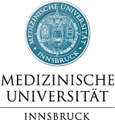Donnerstag, 12.10.2023
Conflicts, Sexual Violence and Women Empowerment? Insights from Democratic Republic of Congo, Liberia, and Sri Lanka
15:00 - 16:30 Uhr
Meeting Zone (Besprechungszone), Department of Political Science, University of Innsbruck, Sowi building, 2nd floor west, Universitätsstraße 15, 6020 Innsbruck
Anmeldung ist nicht erforderlich
Eintritt / Kosten: Keine
Vortragende/r
Assoc. Prof. Carlo Koos
I am an Associate Professor in the Department of Government at the University of Bergen. I am also affiliated with the Development Learning Lab, the WomanStats Project, and the German Institute of Global and Area Studies. Previously I was as humanitarian aid worker with Médecins Sans Frontières in South Sudan, Libya, Egypt, Swaziland and Uganda.
Weitere Informationen
Armed conflicts and wars inflict human suffering, destroy institutions, and infrastructure. Despite all this, several recent studies have found that women’s political representation and agency thrives after armed conflicts. This paradox is attributed to the ability of wars to disrupt entrenched social hierarchies and thus provide opportunities for marginalized groups including women. In this talk, Prof. Koos provides a critical perspective of overly optimistic macro-level approaches, and argues that in order to understand the implications of wars and conflicts, the experiences, behaviors, and attitudes of individuals, families and communities need to be at the center of research. To that end, Prof. Koos will talk about his new ERC-funded project (www.wareffects.eu) that focuses on the micro-level dynamics of war and gender relations. Moreover, he will present a forthcoming article on the sociopolitical legacies of conflict-related sexual violence. The paper draws on original surveys from more than 10,000 respondents in DR Congo, Liberia, and Sri Lanka, showcases novel measurement strategies to provide respondents anonymity, and concludes that survivors of sexual violence engage in collective action and mobilize in their communities, however, with the drawback that this mobilization is largely driven by men. The article provides a new theoretical perspective by shifting the debate from a focus on victimhood towards survivor agency while acknowledging that gender norms appear to remain an obstacle to women’s empowerment.
Veranstalter
Ass.-Prof. Dr Sarah Berens and Ass.-Prof. Dr. Dominik Duell
Institut für Politikwissenschaft

